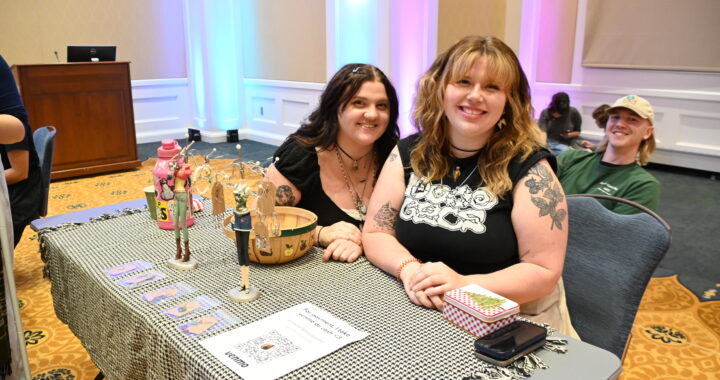Audience gets behind-the-scenes look at Britain’s queen
3 min readBy LAUREN OLSEN
Many audience members rose from their seats on the evening of April 2 as “God Save the Queen” poured through the speakers in Dodd auditorium, honoring the beginning of the Elizabeth II chapter of the Great Lives Lecture Series.
Prolific writer and author of “Elizabeth The Queen,” Sally Bedell Smith, took the stage shortly after.
The queen has been the object of fascination ever since she ascended to the throne in 1952 at the age of 25. In writing the biography, Smith said her goal was to “cut the curtain” and to showcase who the queen truly is, beyond a surface level.
To do this, Smith interviewed coworkers and family of Queen Elizabeth and observed her throughout the course of a year. She traveled with the queen and had the opportunity to have three social encounters with her.
During a slideshow of Queen Elizabeth and the pivotal moments in her life, Smith acquainted the audience with what she learned from her research. She spoke of the queen’s dedication to a life of public service, her innate modesty and humility and highlighted the Queen’s often-overlooked spunky personality.
Smith provided fascinating insights into Elizabeth’s childhood, when she was affectionately nicknamed “Lililbet,” and had a fiery temper and a tendency to fidget.
Smith also discussed the people who influenced the queen and the events that helped shape her character. While Elizabeth’s family, who advised her to sit straight, never allow her back to touch the back of a chair and to refrain from both crying and smiling in public, taught her the manners of royalty, her nannies taught her to be thrifty, and ensured she was never spoiled.
Queen Elizabeth underwent adolescence during the Second World War, and the experience had a powerful impact and gave her a strong sense of duty. She noted that the queen has said, “My life, whether it be long or short, shall be devoted to the service of my people.”
According to Smith, the queen is still a stickler for turning lights off in unused bedrooms.
Queen Elisabeth claims she does not have “a naturally smiley face,” as her mother did. Smith trusts that what appears to be a scowl to some people, actually, is the result of the queen’s effort to contain strong emotions.
An artist, who painted a portrait of Elizabeth, said that one of the most surprising things about the Queen is that she waves her arms around when she talks. “She talks like an Italian!” he said.
On her country estates, a cousin said of her, “She drives like a bat out of hell.”
Smith also talked about Elizabeth’s relationship with her husband of 65 years, Prince Philip, and how they met. Smith said that, in their first world tour in 1953, they were “every bit as glamorous as Kate [Middleton] and William are today.”
One of the queen’s senior advisors told Smith that Prince Philip is the only person in the world who treats Elizabeth as a “real person,” and that the queen has been known to tell her husband at times quite simply to “shut up.”
Smith also pointed out how influential Prince Philip has been in the queen’s decision-making processes. Before making a decision, Elizabeth always likes to hear her husband’s thoughts. Philip was an early adopter of computer technology, and he encouraged the queen to embrace technology and use it to connect to her public.
The queen was described as being completely dedicated to public service, but, as a consequence, most of her energy has been directed toward her duties, and she was a relatively uninvolved mother.
As a grandmother, however, Smith says the queen has been more active and involved, and she was delighted at William’s engagement to Kate Middleton.
Smith also talked of the Queen’s recent Diamond Jubilee, which was only the second in the history of the British monarchy. The Diamond Jubilee, coupled with public delight at the marriage of William and Kate, has created a surge of public support for the royal family.
“More people are recognizing the centrality of the monarchy in holding people together and standing for values that are very important,” Smith concluded.



